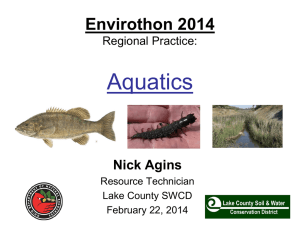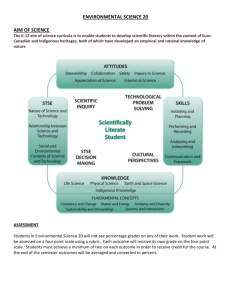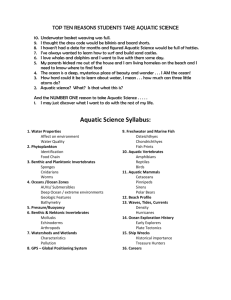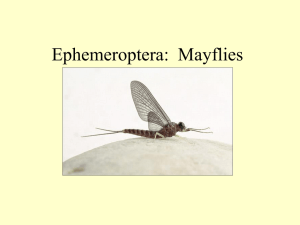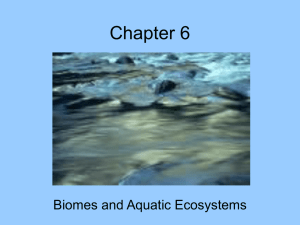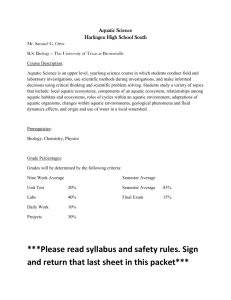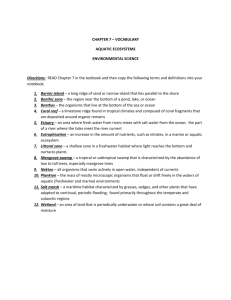Applied Limnology Specialist - UC Agriculture and Natural Resources
advertisement
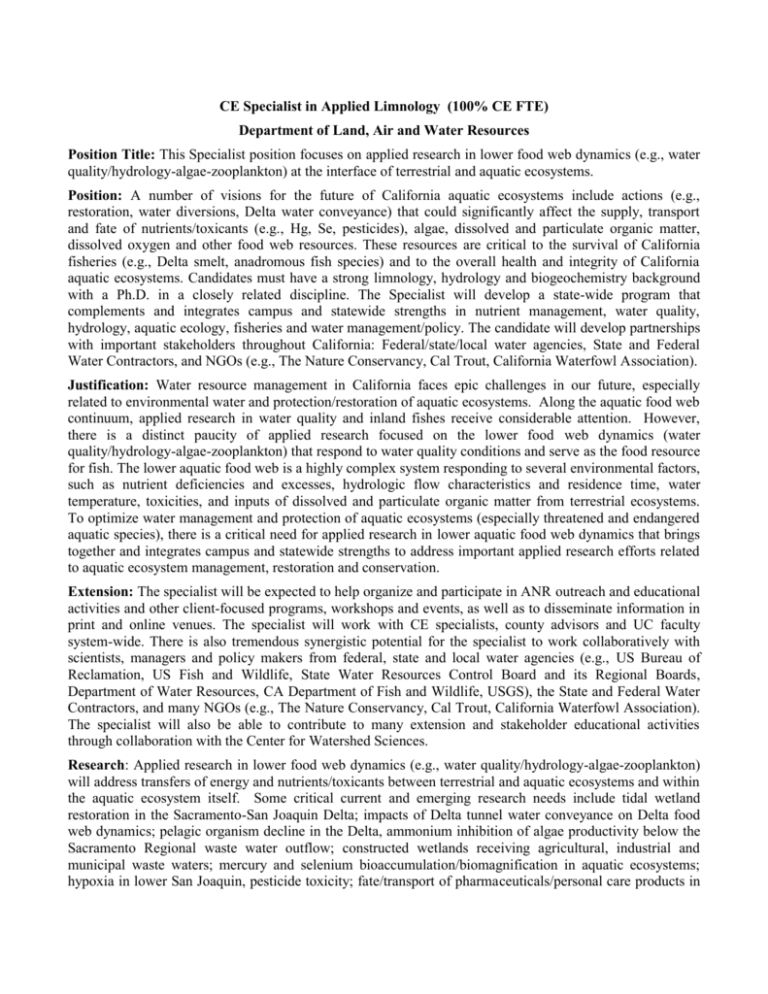
CE Specialist in Applied Limnology (100% CE FTE) Department of Land, Air and Water Resources Position Title: This Specialist position focuses on applied research in lower food web dynamics (e.g., water quality/hydrology-algae-zooplankton) at the interface of terrestrial and aquatic ecosystems. Position: A number of visions for the future of California aquatic ecosystems include actions (e.g., restoration, water diversions, Delta water conveyance) that could significantly affect the supply, transport and fate of nutrients/toxicants (e.g., Hg, Se, pesticides), algae, dissolved and particulate organic matter, dissolved oxygen and other food web resources. These resources are critical to the survival of California fisheries (e.g., Delta smelt, anadromous fish species) and to the overall health and integrity of California aquatic ecosystems. Candidates must have a strong limnology, hydrology and biogeochemistry background with a Ph.D. in a closely related discipline. The Specialist will develop a state-wide program that complements and integrates campus and statewide strengths in nutrient management, water quality, hydrology, aquatic ecology, fisheries and water management/policy. The candidate will develop partnerships with important stakeholders throughout California: Federal/state/local water agencies, State and Federal Water Contractors, and NGOs (e.g., The Nature Conservancy, Cal Trout, California Waterfowl Association). Justification: Water resource management in California faces epic challenges in our future, especially related to environmental water and protection/restoration of aquatic ecosystems. Along the aquatic food web continuum, applied research in water quality and inland fishes receive considerable attention. However, there is a distinct paucity of applied research focused on the lower food web dynamics (water quality/hydrology-algae-zooplankton) that respond to water quality conditions and serve as the food resource for fish. The lower aquatic food web is a highly complex system responding to several environmental factors, such as nutrient deficiencies and excesses, hydrologic flow characteristics and residence time, water temperature, toxicities, and inputs of dissolved and particulate organic matter from terrestrial ecosystems. To optimize water management and protection of aquatic ecosystems (especially threatened and endangered aquatic species), there is a critical need for applied research in lower aquatic food web dynamics that brings together and integrates campus and statewide strengths to address important applied research efforts related to aquatic ecosystem management, restoration and conservation. Extension: The specialist will be expected to help organize and participate in ANR outreach and educational activities and other client-focused programs, workshops and events, as well as to disseminate information in print and online venues. The specialist will work with CE specialists, county advisors and UC faculty system-wide. There is also tremendous synergistic potential for the specialist to work collaboratively with scientists, managers and policy makers from federal, state and local water agencies (e.g., US Bureau of Reclamation, US Fish and Wildlife, State Water Resources Control Board and its Regional Boards, Department of Water Resources, CA Department of Fish and Wildlife, USGS), the State and Federal Water Contractors, and many NGOs (e.g., The Nature Conservancy, Cal Trout, California Waterfowl Association). The specialist will also be able to contribute to many extension and stakeholder educational activities through collaboration with the Center for Watershed Sciences. Research: Applied research in lower food web dynamics (e.g., water quality/hydrology-algae-zooplankton) will address transfers of energy and nutrients/toxicants between terrestrial and aquatic ecosystems and within the aquatic ecosystem itself. Some critical current and emerging research needs include tidal wetland restoration in the Sacramento-San Joaquin Delta; impacts of Delta tunnel water conveyance on Delta food web dynamics; pelagic organism decline in the Delta, ammonium inhibition of algae productivity below the Sacramento Regional waste water outflow; constructed wetlands receiving agricultural, industrial and municipal waste waters; mercury and selenium bioaccumulation/biomagnification in aquatic ecosystems; hypoxia in lower San Joaquin, pesticide toxicity; fate/transport of pharmaceuticals/personal care products in aquatic ecosystems; role of altering hydrologic flow regimes on food resources; and aquatic ecosystem management, restoration and conservation efforts. ANR Network: This position complements the land-based network of ANR scientists working on issues surrounding nutrient management, salinity, irrigation management and water resource management. The position is expected to integrate directly with a variety of program teams such as Water Resources, Forest and Rangeland Systems, and Wildlife and Fish. We envision that this position would contribute to a variety of ANR workgroups including Anadromous and Inland Fish, Land Use, Rangeland Watershed Program and Water Quality. This position will improve the linkage between campus-based institutions such as the Center for Watershed Sciences, Agricultural Sustainability Institute, and with county-based UCCE programs. It is also highly synergistic with recent hires in LAWR including Helen Dahlke a watershed hydrologist, Sam Sandovol, water resource policy and management; Daniele Zaccaria, irrigation management and a nutrient management specialist currently under recruitment. Support: To foster the successful development of the new CE specialist, the Department of Land, Air and Water Resources will provide office and laboratory space and administrative support, consistent with that assigned to other departmental faculty members. In addition, the new specialist will receive base funding support annually, again consistent with those provided to other faculty, to help cover the costs of office supplies, computing, internet and telephone access and research. Other Support: As with other departmental faculty members, the new specialist will be expected to generate additional extramural support for research activities. When considering the integrative role of lower food web dynamics in aquatic systems, sources may include a wide range of federal agencies (e.g., US Department of Agriculture, US Environmental Protection Agency, US Bureau of Reclamation, US Fish and Wildlife Service), state agencies (e.g., State Water Resources Control Board and its Regional Boards, Department of Water Resources, CA Department of Fish and Wildlife), the State and Federal Water Contractors, and many relevant NGOs (e.g., The Nature Conservancy, Cal Trout, California Waterfowl Association). Location: UC Davis is a logical home department for the proposed position and will foster collaboration between ANR colleagues in LAWR, ESP, ETX, WFCB, Center for Watershed Sciences and others. The location would naturally enhance collaborative activities with faculty, researchers and other specialists both within our department as well as across campus and system wide. The location is also ideal given UCD’s proximity to multiple state and federal water resources agencies located in Sacramento. Developed and proposed by: This position was developed by LAWR in consultation with ESP, ETX, and WFCB. External stakeholders providing direct feedback on the position development include US Bureau of Reclamation, State Water Resources Control Board and its Regional Boards, Department of Water Resources, USGS), and the State and Federal Water Contractors.
